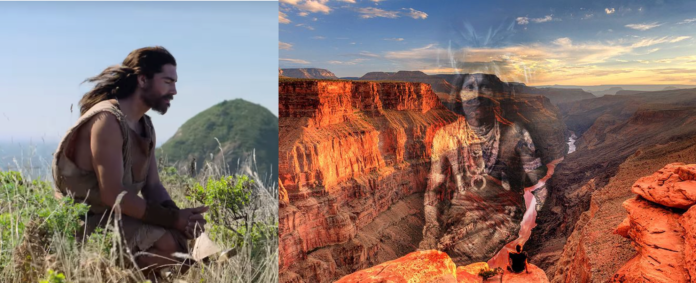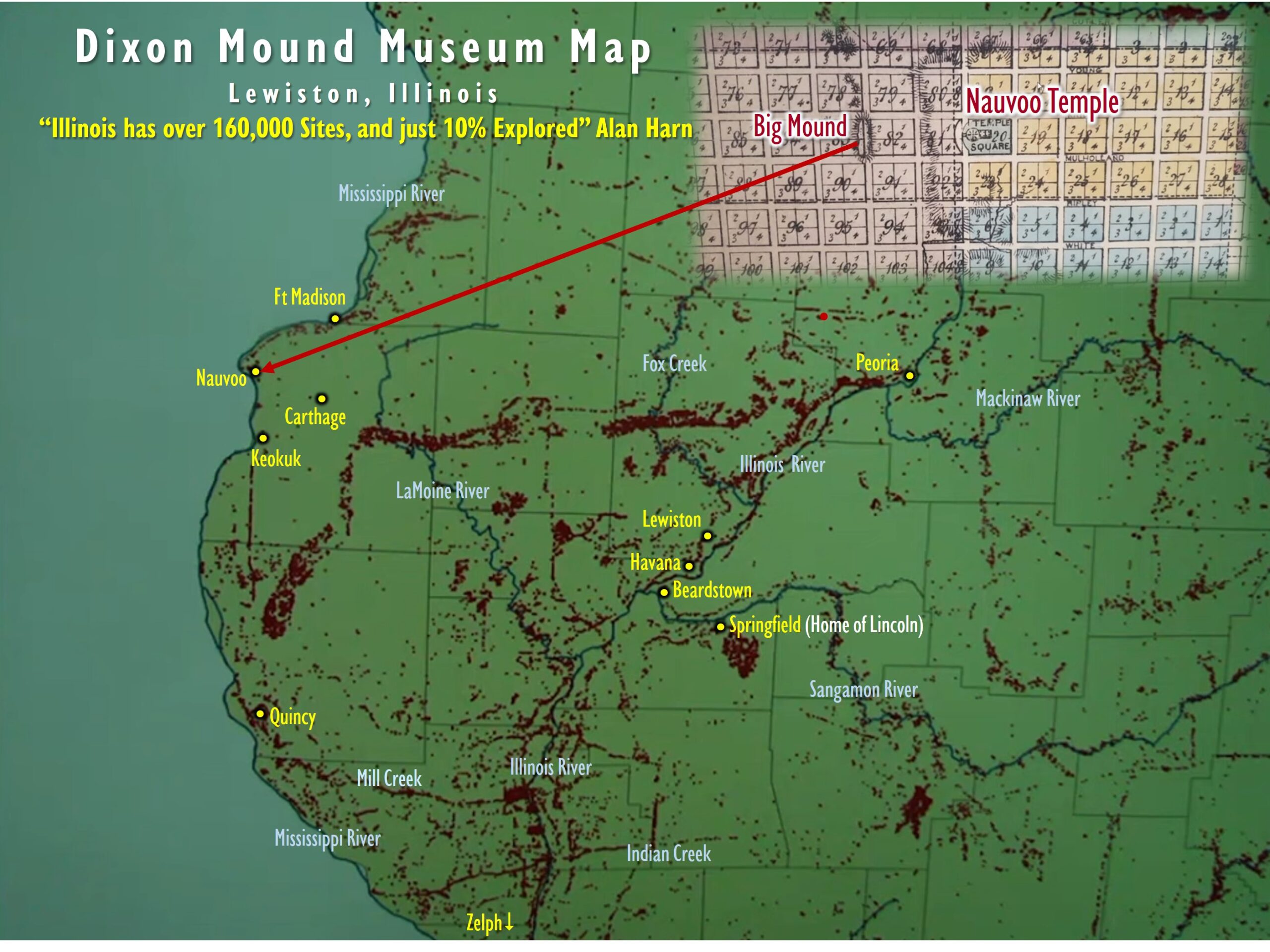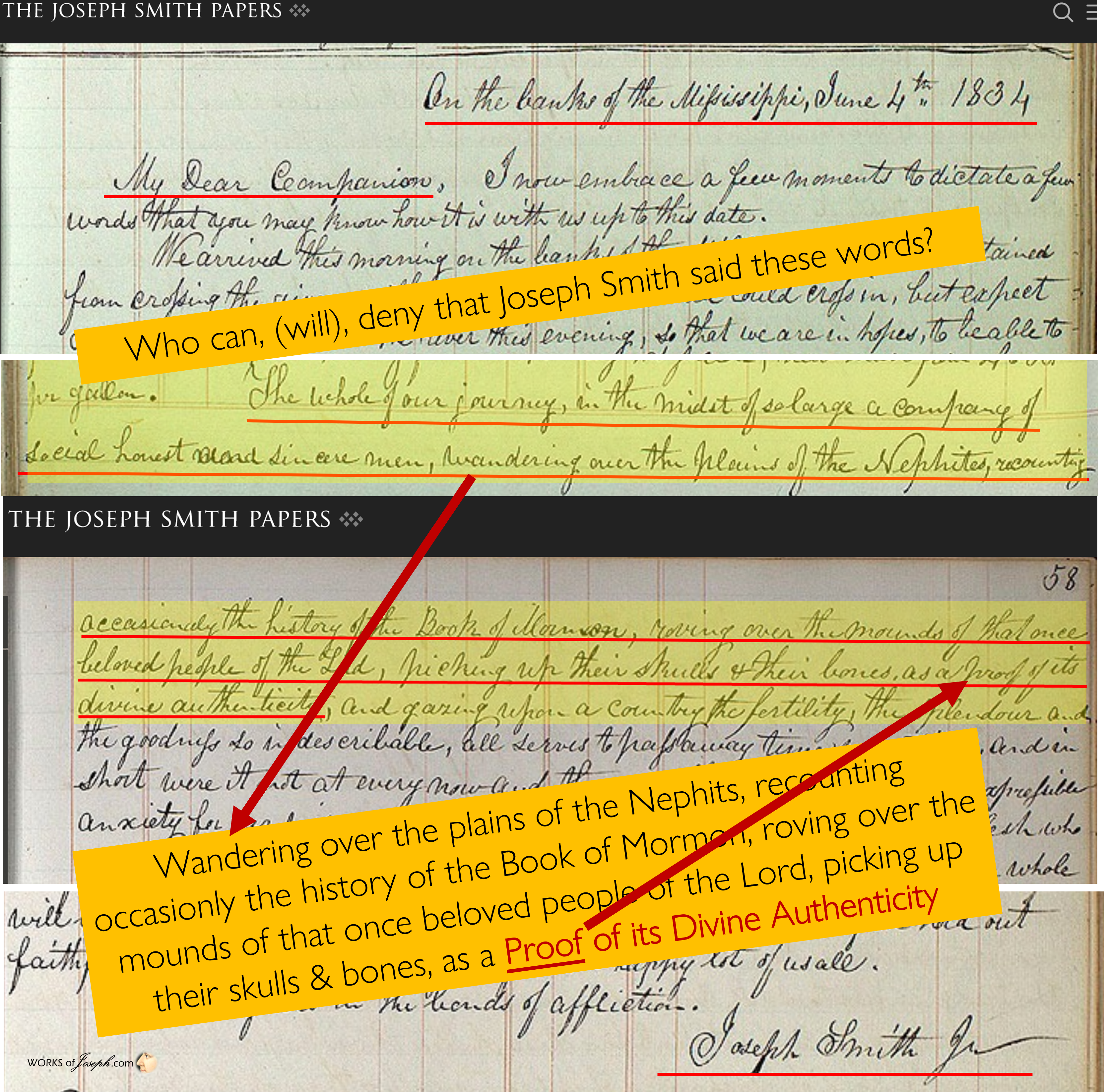Is “Nephi’s Psalm” Really a Psalm?
“Many Book of Mormon readers have recognized this section from 2 Nephi 4 as something very special. These verses give us insight into the struggles of a righteous man, a prophet, providing insight into his humanity that is unparalleled elsewhere in Nephi’s writings. It should be remembered that Nephi’s Psalm comes, in his record, directly following the account of the death of his father, Lehi, and that some of the content of his writing likely reflects his feelings of loss and his thoughts of self-doubt and fear as he prepares to assume his role as leader over the family. It also causes us to both reflect on our shortcomings and to have hope for a brighter future through the Lord’s deliverance. LDS author R. Scott Burton has stated that 2 Nephi 4:16-35 is, “for many Latter-day Saints, one of the most cherished and moving passages in the Book of Mormon.”
With this background, readers can draw deep spiritual strength from Nephi’s psalm, as they relate to the five phases typically present in the covenant language of the Psalms. People are encouraged to honestly recognize their sins, shortcomings, and faults, as Nephi confidently confronted his own challenges and anger. Worshippers then find in Nephi a role model for sincere pleading with the Lord for forgiveness. They then see Nephi rededicating himself to his covenants with God, and committing himself to follow the right path. Finally, the faithful then openly express their joy in gratitude for the goodness and redemption of the Lord.

In this psalm, Nephi shows that he was a skilled author and a brilliant student of the Scriptures. All of his writings regularly demonstrate his ability to integrate scriptural words and phrases. The fact that the “Psalm of Nephi” borrows so extensively from a number of different biblical psalms is evidence that Nephi knew and cherished many of the biblical Psalms, that he joyously used them in his daily life and writing, and that the inspired words of the Scriptures, including the Psalms, were very dear and comforting to Nephi.
As Elder Jeffrey R. Holland has recently noted in his book, For Times of Trouble: Spiritual Solace from the Psalms:
The primary purpose of these scriptural psalms is to help us ‘grow brave by reflection,’ help us exert the faith necessary to ‘smile in trouble’ and ‘gather strength from distress.’ The promises of light to those who are engulfed in darkness and strength for those who are battling an enemy are regularly recurring themes throughout the psalms. … But the backdrop … is the realization that life is very difficult and mortals need God’s constant care in order to prevail.
Structuring his feelings in the form of a psalm allowed Nephi to emphasize his own emotional struggles and how he responded to them. He used a structured format that drew parallels between the problem and the answer. In so doing, he followed a well-recognized pattern for how one should act in the face of spiritual and temporal difficulties and dedicate himself/herself to keeping their covenants with the Lord.
The fact that Nephi structures his psalm on the pattern of some of those in the Bible that deal with temple and covenant imagery should indicate to us that the temple is truly a place of refuge from the storms of our lives and that there is safety and direction in keeping the covenants that we make there. Furthermore, although some may look at the parallels between Nephi’s Psalm and Psalms 25-31 and suggest that Joseph Smith simply plagiarized from the Bible, the fact that these psalms focus on aspects of ancient covenant making that are not entirely obvious to modern readers lends credence to the historicity of the Book of Mormon text.
Reading the Psalm of Nephi strengthens our desire to dedicate ourselves to the Lord and seek his saving power. It also strengthens our testimony of the divine origin of the Book of Mormon and the power of its spiritual message. As Robert Millet has said, “The honest in heart could hardly read Nephi’s Psalm, taste its spirit, and then be critical of the Book of Mormon. Inspired poetry and music are especially attractive to the Spirit.” Meridian Magazine
The Psalm of Nephi: A Lyric Reading
Steven P. Sondrup
Because by far the greatest portion of the Book of Mormon is narrative—though admittedly in several different ways—other literary modes embedded in the narrative flow are less obvious and consequently less easily identified and read in terms of their own unique generic conventions. One such passage occurs in the fourth chapter of 2 Nephi, verses 16 through 35, a passage that is often referred to as the “Psalm of Nephi,” at least since Sidney Sperry provided this formulation in his commentary on the Book of Mormon. The question to be discussed with reference to these verses is not whether they are a psalm in the biblical sense of the term but rather the nature and extent of their poetic qualities and some of the most central interpretive implications inextricably connected with their lyricism.
Psalm of Nephi 2 Nephi 4:15-35

15 And upon these I write the things of my soul, and many of the scriptures which are engraven upon the plates of brass. For my soul delighteth in the scriptures, and my heart pondereth them, and writeth them for the learning and the profit of my children.
16 Behold, my soul delighteth in the things of the Lord; and my heart pondereth continually upon the things which I have seen and heard.
17 Nevertheless, notwithstanding the great goodness of the Lord, in showing me his great and marvelous works, my heart exclaimeth: O wretched man that I am! Yea, my heart sorroweth because of my flesh; my soul grieveth because of mine iniquities.

18 I am encompassed about, because of the temptations and the sins which do so easily beset me.
19 And when I desire to rejoice, my heart groaneth because of my sins; nevertheless, I know in whom I have trusted.
20 My God hath been my support; he hath led me through mine afflictions in the wilderness; and he hath preserved me upon the waters of the great deep.
21 He hath filled me with his love, even unto the consuming of my flesh.
22 He hath confounded mine enemies, unto the causing of them to quake before me.
23 Behold, he hath heard my cry by day, and he hath given me knowledge by visions in the night-time.
24 And by day have I waxed bold in mighty prayer before him; yea, my voice have I sent up on high; and angels came down and ministered unto me.
25 And upon the wings of his Spirit hath my body been carried away upon exceedingly high mountains. And mine eyes have beheld great things, yea, even too great for man; therefore I was bidden that I should not write them.
26 O then, if I have seen so great things, if the Lord in his condescension unto the children of men hath visited men in so much mercy, why should my heart weep and my soul linger in the valley of sorrow, and my flesh waste away, and my strength slacken, because of mine afflictions?
27 And why should I yield to sin, because of my flesh? Yea, why should I give way to temptations, that the evil one have place in my heart to destroy my peace and afflict my soul? Why am I angry because of mine enemy?
28 Awake, my soul! No longer droop in sin. Rejoice, O my heart, and give place no more for the enemy of my soul.

29 Do not anger again because of mine enemies. Do not slacken my strength because of mine afflictions.
30 Rejoice, O my heart, and cry unto the Lord, and say: O Lord, I will praise thee forever; yea, my soul will rejoice in thee, my God, and the rock of my salvation.
31 O Lord, wilt thou redeem my soul? Wilt thou deliver me out of the hands of mine enemies? Wilt thou make me that I may shake at the appearance of sin?
32 May the gates of hell be shut continually before me, because that my heart is broken and my spirit is contrite! O Lord, wilt thou not shut the gates of thy righteousness before me, that I may walk in the path of the low valley, that I may be strict in the plain road!
33 O Lord, wilt thou encircle me around in the robe of thy righteousness! O Lord, wilt thou make a way for mine escape before mine enemies! Wilt thou make my path straight before me! Wilt thou not place a stumbling block in my way—but that thou wouldst clear my way before me, and hedge not up my way, but the ways of mine enemy.
34 O Lord, I have trusted in thee, and I will trust in thee forever. I will not put my trust in the arm of flesh; for I know that cursed is he that putteth his trust in the arm of flesh. Yea, cursed is he that putteth his trust in man or maketh flesh his arm.
35 Yea, I know that God will give liberally to him that asketh. Yea, my God will give me, if I ask not amiss; therefore I will lift up my voice unto thee; yea, I will cry unto thee, my God, the rock of my righteousness. Behold, my voice shall forever ascend up unto thee, my rock and mine everlasting God. Amen.
I love the Lord – Nephi’s Psalm – 1 Nephi 4 Video
What I learn from Nephi
We learn many spiritual insights from the Lord through Nephi’s Psalm. This is some of the most beautiful scripture we have. I often think of myself as “O wretched man that I am” It humbles me and makes me strive to become better.
When Nephi says, “He hath filled me with his love” I ponder and know this is true for me. It’s hard for me to stay upset longer than a few minutes as I pull my self together knowing He loves me.
It seems others have taken advantage of me in business, school, and friendships, but I “Do not anger again because of mine enemies.” I have learned to rejoice and as a great Aunt of mine said, “If you aren’t having trials, you aren’t growing closer to the Lord.” She is wise and I try to never say “why me”, but instead say, “What am I supposed to learn from this?”
The part of this Psalm that gives me the most comfort is, “O Lord, I have trusted in thee, and I will trust in thee forever” As I continue down this path and Trust Him, I am being blessed. May you enjoy your journey on earth as well.
I love the Native Americans. They are such a spiritual people just like my friend, Red Ant. My parents served a mission among the Hopi, Apache, Navajo, Isleta, and Zuni. I love these people. I want you to read a Hopi Prophecy below that Red Ant sent me. It is wonderful. There are things today that this prophecy parallels with our world today. Even though these are not official truth, I continue to learn much from them. Other cultures can teach us a lot just as Nephi teaches us the complete truth.
Amazing Hopi Prophecy For The Future Of Humanity
By Anomalien.com On Jul 31, 2020
The prophecies of the Hopi Indians are fascinating to read. Some believe that the Hopi prophecy holds the key to the future and foretell of the end of the world as we know it.
It is impossible to know for certain if these predictions are true, but one fact is certain: each Hopi prophecy seems to mirror the prophecies of other cultures as well.
Is this a coincidence? Or does it mean we should take these prophecies seriously?
According to Hopi mythology, the world has already been destroyed and rebuilt three times. The first world was destroyed by fire. This is understood as volcanic eruptions worldwide that destroyed everything, allowing the world to start again.
The second world was destroyed by the Ice Age, when the entire earth was covered in ice. The third world was destroyed by a global flood.
Hopi Mythology and The Fourth World
According to Hopi mythology, we are currently living in the Fourth World, but it will soon be destroyed as well if Hopi prophesy is true.
According to the prophecy, there are nine signs that will be fulfilled before the end of the Fourth World. The signs are as follows:

1. The coming of the “white-skinned men who struck their enemies with thunder” was translated to mean the white man with guns.
2. The coming of “spinning wheels with voices” was translated to mean the arrival of Pioneers in covered wagons.
3. A “strange beast like buffalo with long horns” was the long-horn cattle brought into the region by the white man.
4. The land being crossed with snakes of iron was the railroad.
5. The land criss-crossed with a giant spider web was the power lines and phone lines of modern times. Although, it could also be interpreted to mean the world-wide-web – the Internet of today.
6. The land criss-crossed with “rivers of stone that make pictures in the sun” is translated as the system of highways and the mirage effect that they have.
7. The “sea turning black and many things dying” because of it mirrors the oil spills that have done untold damage to the oceans and the life in them.
8. “Long-haired youths” who join the tribal nations to learn their ways depicts the 1960s Hippies.
9. Dwelling places in the heavens that fall with a great crash, appearing as a blue star is translated as the U.S. Space Station Skylab which appeared blue as it fell to the earth.
The Hopi believe we are getting ready to begin the Fifth World, called the World of Illumination.
They foretell a Sixth (The World of Prophecy and Revelation) and Seventh World (The World of Completion) as well.
All of these signs have allegedly seen fulfillment, so what is left of Hopi prophesy that relates to our future?
Prophecies for the Future
The Hopi prophecy describes a purification, where there will be great destruction all over the world.
Natural disasters, such as floods and earthquakes are said to be warning signs of this coming purification.
A Hopi leader, Thomas Banyacya, had the opportunity to speak to the United Nations in 1992. When he spoke to the leaders of the world, he said:
“If we humans do not wake up to the warnings, the great purification will come to destroy this world just as the previous worlds were destroyed.”

Banyacya went on to explain that we have two paths. One path represents technology, separate from nature, that leads to destruction.
The second path is harmony with nature that will result in a paradise.
People Living Carelessly: Spiritual Leader Chief Dan Evehema spoke of humankind becoming careless, and that this carelessness would lead to destruction.
He also spoke of the big industry becoming careless, and how that will lead to a change in times. He reports that some people will look to “new lifestyles” to help them adjust to these changes.
The Earth Robbed of Her Resources: The Chief also spoke of industry depleting the earth’s natural resources, with the belief that these things would never run out. This will lead to fuel shortages, food shortages and money having no value.

Corrupt Leaders Hunted Down: Evehema warned that people would grow tired of corrupt politicians and would band together to fight for peace, realizing their political leaders had failed them. These leaders would be hunted down, and eventually, they would even hunt each other.
The Earth Restored: Chief Evehema spoke of a final battle, where liberators come from the west to cleanse the heart of the people and restore the earth. This battle is said to be the final battle between good and evil.
World War III: Hopi prophecy also warns of a third world war started by China, India, Palestine and Africa. It says that the United States will be destroyed by a “gourd of ashes”, which could be taken to mean a nuclear weapon.
This will cause the waters to boil, the land to be burned and sickness that no medicine can cure. According to prophesy, the only ones who will be saved from this disaster are the Hopi themselves.
Salvation According to many of the Hopi teachings, these prophecies do not have to be absolute. If the people of the earth learn to live peacefully and in harmony with nature, the destruction of the earth can be avoided.
Whether you believe in Hopi prophecies or not, this is wise advice.
As we see corruption in government as well as in business, it would seem that the best solution is to return to the basics – to seek out what is best for the planet and for those that live on it, rather than seeking out one’s own best interests.






